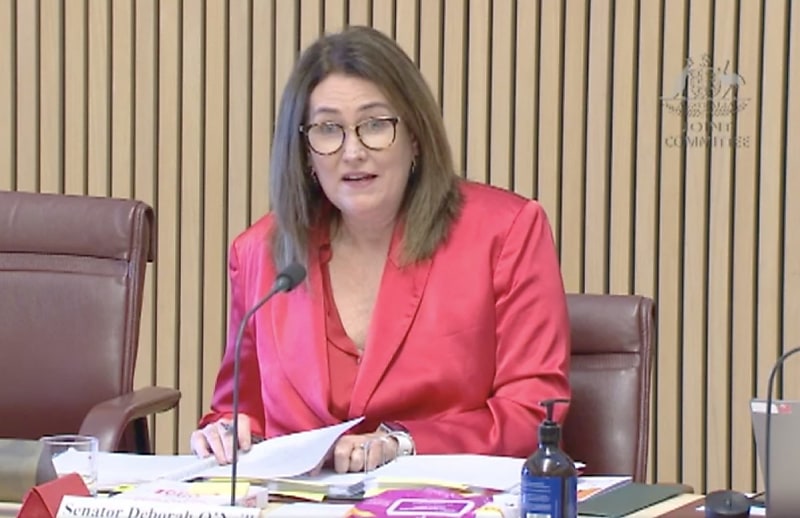There were zero self-disclosures of sanctionable conduct by CA ANZ members at PwC as the tax secrets scandal unfolded this year, the professional body admitted at the parliamentary inquiry into financial services last week, even though this is required under the body’s rules.
Senator Deborah O’Neill (pictured) said the CA ANZ bylaws created a positive duty on all members to report their own sanctionable conduct and asked how many PwC members had self-reported.
You’re out of free articles for this month
General counsel for CA ANZ, Vanessa Chapman, said PwC had self-reported as a firm in the wake of TPB revelations about the sharing of tax secrets and conflicts of interest, and that report took in all partners.
None had individually self-reported and Peter Collins, who was at the centre of the scandal, had resigned prior to being disqualified by the TPB.
But Ms O’Neill asked why, with at least eight dismissals from PwC, those individuals had failed to report themselves to the body.
“To be clear, despite CA ANZ's bylaws creating this positive duty on members to report their own sanctionable conduct to CA ANZ on admission to the profession and on renewal of annual membership and during membership to the Professional Conduct Committee there have been zero self-reports of sanctionable conduct from any of the PwC partners – is that correct Ms Chapman?”
“I believe so.”
CA ANZ CEO Ainslie van Onselen said because the names were made public, self-disclosure was redundant but Ms Chapman admitted that the body could not provide figures for similar admissions from the rest of the big four, despite disclosures on the matter to the inquiry.
Ms Chapman said a member under suspicion or investigation would not necessarily have to self-disclose.
“It's a fairly high bar for self-disclosure. But we have had on a number of occasions members, including members from large firms, disclose that for example, they've had a referral or they’re subject of a referral for example to the company's auditors disciplinary board.
“So there is a practice of self-disclosure.”
She said the self-disclosure rules were poorly understood and “the fact that our mandatory declarations every year ask our members if they've been convicted of a criminal offence or a tax offence in our view that tends to frame the type of conduct that is required to be disclosed”.
“In fact, it is broader. There is a broader range of conduct which members are expected to self-disclose for the PCC to determine.”
Philip King
AUTHOR
Philip King is editor of Accountants Daily and SMSF Adviser, the leading sources of news, insight, and educational content for professionals in the accounting and SMSF sectors.
Philip joined the titles in March 2022 and brings extensive experience from a variety of roles at The Australian national broadsheet daily, most recently as motoring editor. His background also takes in spells on diverse consumer and trade magazines.
You can email Philip on: This email address is being protected from spambots. You need JavaScript enabled to view it.

 Login
Login







